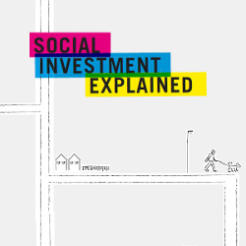Charities may be able to access more flexible finance and attract more support through social investment than traditional grant funding, according to a guide published today by Social Enterprise UK and the Big Lottery Fund.
The guide, called Social Investment Explained, says that charities must consider whether they are ready for investment, including examining the skills of their staff and board, the services they offer, the track record of the organisation, and the state of the organisation’s finances.
It says social investment is only appropriate for charities which are able to pay it back, particularly those with an income stream that investment would help to grow. It says charities are most likely to want money to buy assets or scale up.
The guide examines the types of social investment available and the sources who provide it, and looks at how charities can work out how much money they need.
It provides a guide to the available social finance intermediaries and a glossary of terms.
Nick Temple, director of business and enterprise at Social Enterprise UK, said: "As cuts continue to bite and traditional sources of finance shrink, connecting charities and social enterprises with social finance will be critical to their survival and growth in the coming decade.
"But while the social investment market is increasingly ready to invest, work is needed to create increased demand among charities and social enterprises on the frontline.
“Social sector organisations need advice to navigate what can seem to be a daunting new world.”









